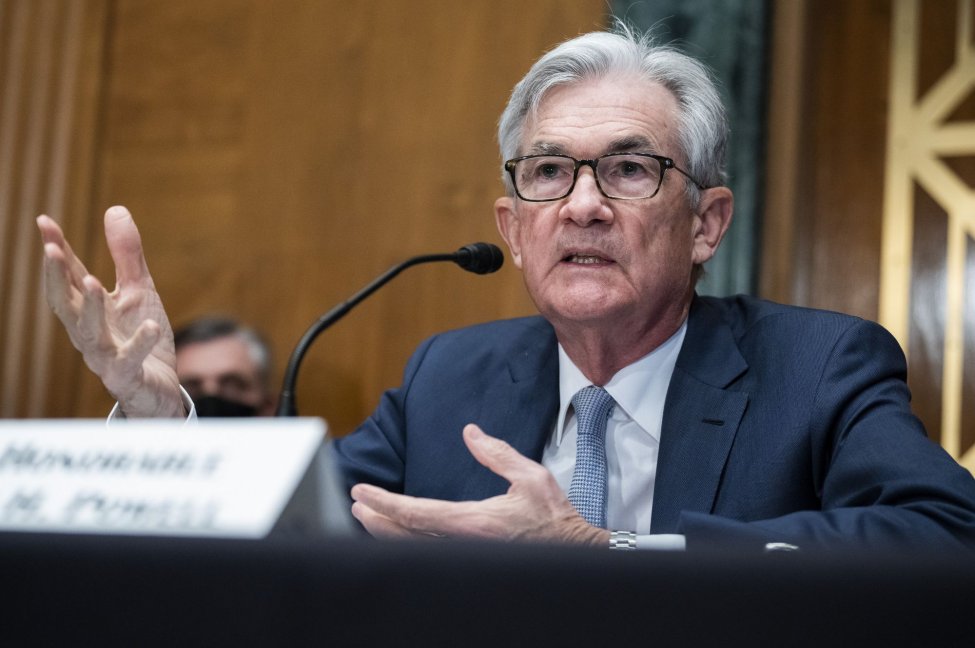Push for Rate Cuts Fuels Speculation Over Powell’s Successor
08.06.2025 8:00 1 min. read Alexander Stefanov
Kevin Warsh, a former member of the Federal Reserve’s Board, has become a key figure in speculation about who might lead the U.S. central bank next.
As talk swirls around a potential shakeup at the Fed, Donald Trump has hinted that a decision on Jerome Powell’s replacement could be announced soon.
Although Powell’s term runs until May 2026, Trump has expressed dissatisfaction with his leadership—particularly over interest rate policy. Trump recently pushed for a full percentage point rate cut, accusing Powell of harming the economy and labeling him a “disaster.”
Warsh’s name has resurfaced as a possible successor, with prediction markets like Polymarket giving him a 24% chance of being tapped if a new appointment happens this year. However, more than half of the traders still believe no change will be made before year’s end.
While Trump may want a new direction at the Fed, a recent Supreme Court ruling reaffirmed that the U.S. president cannot directly remove the Fed Chair, making any near-term replacement unlikely unless Powell resigns.
Despite the legal barriers, Trump’s comments suggest a desire to install a Fed leader more aligned with his push for lower interest rates—making Warsh a name to watch as election season heats up.
-
1
Economic Instability and Political Shift Fueling Bitcoin’s Rise – Galaxy Digital CEO
23.05.2025 12:00 2 min. read -
2
Trump Renews Attack on Fed Chair, Calls for Immediate Rate Cuts
18.05.2025 8:00 1 min. read -
3
Japan’s Inflation Hits 3.5% as Food Prices Soar and Tariff Risks Loom
23.05.2025 21:00 1 min. read -
4
US Dollar Dominance Under Threat Amid Yuan’s Global Ambitions
22.05.2025 14:00 2 min. read -
5
Wall Street Analyst Sees Bright Side of Ballooning U.S. Debt
30.05.2025 8:00 2 min. read
Tariffs Threaten to Stall U.S. Growth in 2025, Recovery Not Expected Until 2026
The U.S. economy may be closer to a downturn than many realize, according to Jay Bryson, chief economist at Wells Fargo.
Dollar Faces Deep Decline as Fed Cuts Pressure Currency, Warns Morgan Stanley
Morgan Stanley has issued a cautionary outlook on the U.S. dollar, predicting a major decline over the coming year as Federal Reserve rate cuts take hold.
Trillions in Debt Payments Could Break U.S. Economy, Ray Dalio Predicts
Legendary investor Ray Dalio has issued a stark warning about the trajectory of U.S. government finances, suggesting the country is drifting toward a series of severe economic shocks unless its debt spiral is urgently addressed.
Wall Street Veteran Warns Tariffs Could Disrupt AI-Driven Market Rally
Steve Eisman, the famed investor known for forecasting the 2008 housing collapse, is sounding the alarm—not on overvalued tech stocks or interest rates, but on the escalating risk of global trade disputes.
-
1
Economic Instability and Political Shift Fueling Bitcoin’s Rise – Galaxy Digital CEO
23.05.2025 12:00 2 min. read -
2
Trump Renews Attack on Fed Chair, Calls for Immediate Rate Cuts
18.05.2025 8:00 1 min. read -
3
Japan’s Inflation Hits 3.5% as Food Prices Soar and Tariff Risks Loom
23.05.2025 21:00 1 min. read -
4
US Dollar Dominance Under Threat Amid Yuan’s Global Ambitions
22.05.2025 14:00 2 min. read -
5
Wall Street Analyst Sees Bright Side of Ballooning U.S. Debt
30.05.2025 8:00 2 min. read

